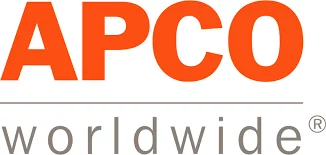The Future of Digital Infrastructure and Connectivity
What do 5G and other advanced communications technologies mean for the future of a dispersed workforce? What do they mean for social equity? Join this webinar to learn how telecommunications leaders and experts are thinking about our society’s evolving needs for digital access. We will discuss how innovations in digital connectivity can transform lives for those on the other side of the digital divide. Participants will also receive an update on how the region is adopting new technologies and advancing digital access.
Moderator
- Danielle Hinton, Associate Partner, McKinsey & Company
Panelists
- Jeff Hannah, Business Development Manager, Crown Castle
- Evan Regan-Levine, Executive Vice President, JBG Smith
- Wanda M. Gibson, Chief Technology Officer, Prince George’s County
Watch the Recording
Read the Summary
Importance of Digital Infrastructure for Attracting Tech Companies
Strong digital infrastructure and connectivity is essential for attracting technology companies to the area. Evan Regan-Levine, Executive Vice President at JBG Smith, said that the three biggest growth industries in our region are cybersecurity, cloud computing, and AI/IOT. When JBG Smith researched what leaders in those industries want, they found they need talent first, strong connectivity second.
But “connectivity” means a lot more than just a good WiFi connection in the office. They need edge data centers, which are smaller data centers located near a work site, giving tech companies access to the cloud with more speed and lower latency. They also need very strong connectivity, like 5G, to allow for high device density.
There are also use cases where connectivity throughout an area can give companies new options for how they keep employees connected. One use case is that when someone is hired, they gain access to internet connectivity in the office and the entire neighborhood where the company is located, including their own home if they live nearby.
Community Impact
Jeff Hannah, Business Development Manager at Crown Castle, pointed out that there are many neighborhoods around the region that are innovating with digital infrastructure and connectivity. For example, the District partnered with Crown Castle to deliver free WiFi in areas of DC north of Massachusetts Avenue. National Harbor in Maryland is also piloting new programs, like autonomous vehicles.
Jeff Hannah said that wireless connectivity is the key to closing the digital divide. There is growing emphasis on small cells in urban areas, since WiFi has more limitations than 5G and LTE. Wanda M. Gibson, Chief Technology Officer for Prince George’s County, stressed that to build social equity, we must treat connectivity as a basic utility, like water and electricity.
Expanded 5G opens the door to new use cases that have exciting societal benefits. For example, fire and police departments may be able to track first responders through a building in a fire or active shooter situation.
It’s worth noting that this use case, and many others, are only possible if buildings are built or retrofitted in ways that allow 5G to penetrate building walls. Otherwise, people will have 5G access outside on streets and parks, but not in the spaces where they are really needed.
Regional Collaboration
Wanda Gibson explained that all municipalities in the Greater Washington region have worked together over the years to lay out a regional fiber network and to share ideas about how best to build up our regional digital infrastructure.
Evan Regan-Levine added that he believes that big digital infrastructure projects are always more successful structured as a public-private partnership. He said that Arlington County has been a great partner on the National Landing project, and that neither Arlington County nor JBG Smith/Amazon could run that project alone.
About the Future of Work Briefing Series
Find all series information here.
In this extended briefing series, we will explore the COVID-19 pandemic’s predicted ripple effect on how we work, live, study, travel, shop, and play—not just this year, but into the future.
The series will combine world-class research and analysis with storytelling from top business and government leaders as they adapt to a changing world. Participants will gain a deeper and broader understanding of trends that will have a material impact on their business and personal lives. This series is produced by the Greater Washington Board of Trade and most sessions will be available to the entire Greater Washington business community in support of our region’s ongoing growth and development.
Presenting Sponsor

Knowledge Partners


Become a member today
We need your voice at the table to make Greater Washington a place where everyone can succeed



















